In the realm of international trade, sea freight serves as a cornerstone for businesses looking to import goods from countries like China. This method of transportation leverages cargo ships to move large volumes of products across oceans, providing a cost-effective and efficient solution for global trade. With its ability to accommodate diverse commodities—from machinery and electronics to textiles and perishables—sea freight is favored by many importers seeking reliable logistics options.
This guide will delve into the vital aspects of sea freight, equipping you with the knowledge necessary for a successful importing experience from China to various destinations, including Ghana.
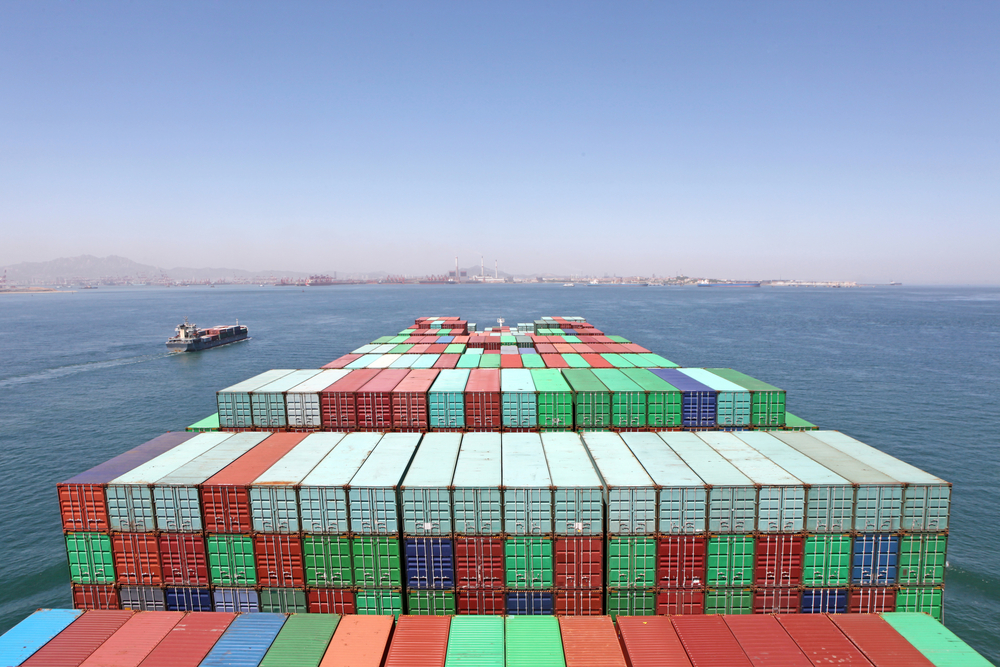
Understanding Sea Freight
Sea freight refers to the transportation of goods via cargo ships across oceans and seas. This mode of shipping is predominantly used for large-scale international trade due to its cost-effectiveness and capability to handle substantial volumes of cargo. Businesses often prefer sea freight when importing goods from countries such as China, where manufacturing capabilities are abundant and diverse.
Choosing sea freight is particularly advantageous for several reasons:
-
Cost Efficiency: Compared to air freight, sea freight offers significantly lower costs, especially for bulk shipments. This is particularly beneficial for businesses looking to minimize logistical expenses while maximizing profit margins.
-
Capacity: Cargo ships can accommodate a large amount of freight, making them ideal for heavy goods and bulk shipments. For instance, a standard shipping container can hold up to 30 metric tons of cargo, allowing companies to ship various products in one voyage.
-
Environmental Considerations: Shipping by sea is generally more environmentally friendly than air transport. Cargo ships produce lower emissions per ton of freight transported, making this option more sustainable for environmentally-conscious businesses.
-
Variety of Commodities: Almost any type of product can be shipped via sea freight, including machinery, electronics, textiles, and perishables (with proper refrigeration). This versatility is a crucial factor for businesses importing diverse goods from regions like China.
-
Global Reach: Sea freight provides access to virtually any global market. The extensive network of shipping routes and ports ensures that goods can reach their destination efficiently, regardless of location.
Benefits of Sea Freight for Importing Goods
The benefits of using sea freight when importing goods from China extend beyond mere cost savings. Here are some of the key advantages:
| Benefit | Description |
|---|---|
| Lower Costs | Significantly cheaper than air freight, especially for large shipments. |
| Higher Volume | Ability to transport large quantities of goods in a single shipment. |
| Reduced Risk | Compared to air transport, cargo ships are less susceptible to delays caused by weather-related disruptions. |
| Flexible Scheduling | Frequent departures allow for flexible scheduling of shipments. |
| Customized Solutions | Various shipping options (LCL, FCL, RO-RO) to fit different business needs. |
| Enhanced Security | Cargo ships are equipped with advanced security systems, reducing the risk of theft and damage. |
With these advantages in mind, businesses can make informed decisions about their shipping strategies, particularly when considering options for importing goods from China.
Key Considerations for Shipping from China to Ghana
When shipping goods from China to Ghana, several key factors must be considered to ensure a smooth and efficient process. These include shipping methods, shipping routes, required documents, and customs clearance processes.
Shipping Methods
There are several shipping methods available for transporting goods from China to Ghana. The most prevalent options are:
-
Full Container Load (FCL): This method involves renting an entire container exclusively for your goods. It is ideal for large shipments, offering cost efficiency and reduced handling risks.
-
Less than Container Load (LCL): For smaller shipments that do not fill an entire container, LCL shipping allows multiple shipments from different exporters to share container space. This is a cost-effective option for businesses with smaller shipment volumes.
-
Ro-Ro (Roll-on/Roll-off): This method is used for transporting vehicles and heavy equipment. Goods are driven directly onto the vessel, allowing for faster loading and unloading.
-
Consolidated Shipping: Often used for smaller cargo, this method combines multiple shipments into one larger shipment to reduce costs.
Shipping Routes
The shipping route selected can significantly impact delivery time and cost. Common shipping routes from China to Ghana typically involve major ports such as:
| Port of Departure | Port of Arrival | Average Transit Time |
|---|---|---|
| Shanghai | Tema | 30-40 days |
| Shenzhen | Takoradi | 35-45 days |
| Ningbo | Abidjan | 30-35 days |
Shipping routes may differ based on the shipping line’s availability and operational schedules. Companies should evaluate their options and select the route that best aligns with their timelines and budgets.
Required Documents
To ensure compliance with international shipping regulations, several essential documents are required when importing goods from China to Ghana:
-
Bill of Lading (BOL): This document serves as a receipt for the cargo and a contract for transportation.
-
Commercial Invoice: It provides details about the transaction, including item descriptions, quantities, prices, and payment terms.
-
Packing List: This document outlines the contents of the shipment, including weights and dimensions, facilitating customs inspection.
-
Certificate of Origin: This verifies where the goods were manufactured.
-
Import License: Certain goods may require specific licenses for importation into Ghana.
-
Insurance Certificate: To safeguard against potential losses, obtaining insurance coverage for the shipment is advisable.
You may be interested in the following related articles:
- Why Ocean Shipping is Better Than Other Shipping Methods
- Cheapest Shipping Company from China to Costa Rica: What You Need to Know
- The Ultimate Guide to Container Shipping Costs from China to Kenya in 2024
- The Ultimate Guide to Door to Door Shipping from China to Indonesia
- Door to Door Shipping from China to Guatemala: A Step-by-Step Process
- Discover the Cheapest Shipping Company from China to Belarus
Customs Clearance
Customs clearance is a critical step in importing goods from China to Ghana. It involves the submission of necessary documentation to the Ghana Revenue Authority (GRA) for the clearance of goods. Key considerations include:
-
Duties and Taxes: Importers are required to pay applicable customs duties and taxes based on the value of the imported goods. This cost should be factored into the total shipping expenses.
-
Compliance with Regulations: Compliance with Ghana’s import regulations is necessary to avoid penalties or delays. This includes adhering to standards for quality, safety, and labeling.
-
Engaging a Customs Broker: To streamline the customs clearance process, working with a professional customs broker familiar with Ghana’s regulations is often beneficial. A broker can help navigate the complexities of customs procedures, ensuring timely clearance of goods.
-
Potential Delays: Various factors, such as documentation errors or inspections, can lead to delays in customs clearance. Importers should proactively address any issues to mitigate potential impacts on their supply chain.
Incorporating these considerations into your shipping strategy will enhance the efficiency of importing goods from China to Ghana. For a seamless and reliable freight forwarding experience, consider partnering with Dantful International Logistics, a highly professional, cost-effective, and high-quality one-stop international logistics service provider for global traders.
Major Ports for Sea Freight
Top Chinese Ports for Exporting to Ghana
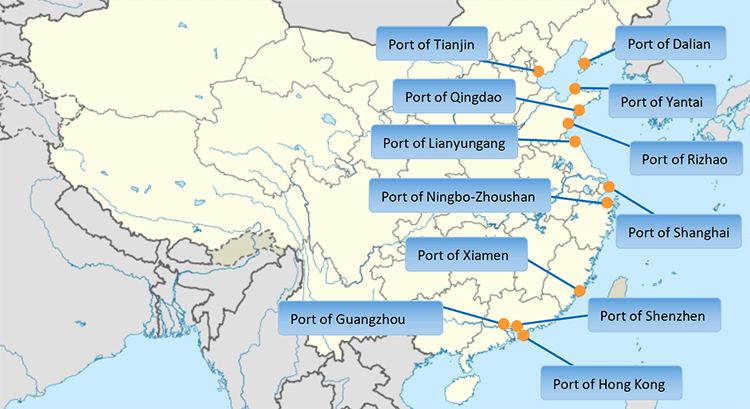
When it comes to exporting goods from China to Ghana, several major ports facilitate efficient sea freight operations. These ports are equipped with extensive facilities and connections to handle large volumes of cargo effectively. Here’s a look at the top Chinese ports utilized for shipments heading to Ghana:
| Port Name | Location | Key Features |
|---|---|---|
| Shanghai | East China | One of the busiest ports globally; advanced handling facilities; extensive shipping routes. |
| Shenzhen | South China | Proximity to manufacturing hubs; modern infrastructure; quick turnaround times. |
| Ningbo | East China | Strategic location for bulk shipments; strong connectivity to international shipping lines. |
| Guangzhou | South China | High export capacity; well-connected to logistics networks. |
| Tianjin | North China | Major gateway for northern China; diverse shipping options. |
These ports not only support robust export activities but are also pivotal in ensuring smooth logistics and efficient transit for goods destined for Ghana.
Key Ghana Ports for Imports
Upon arrival in Ghana, shipments are typically processed through several key ports. Understanding these ports is crucial for businesses engaging in trade with China:
| Port Name | Location | Key Features |
|---|---|---|
| Tema Port | Greater Accra | The largest and most operational port in Ghana; equipped for both bulk and container shipping. |
| Takoradi Port | Western Region | Key port for exporting and importing goods; specializes in handling oil and gas equipment. |
| Accra Port | Greater Accra | Primarily for smaller vessels and fishing boats; serves local and regional trade. |
| Keta Port | Volta Region | Lesser-used port for specific cargo types; aimed at regional trade expansion. |
These ports play a vital role in facilitating trade flows from overseas, ensuring that imported goods are efficiently processed and delivered throughout Ghana.
Read More:
- Shipping From China to the United States
- Shipping From China TO CANADA
- Shipping From China To Netherlands
- Shipping From China To UNITED KINGDOM
- Shipping From China To ALGERIA
- Shipping from China to UAE
- Shipping from China to Saudi Arabia
The Sea Freight Shipping Process Step-by-Step
Navigating the sea freight shipping process can be complex. Understanding each step will help ensure that shipments from China to Ghana are executed seamlessly. Here’s a detailed breakdown of the typical process:
1. Obtaining a Freight Quote and Booking
The first step involves requesting a freight quote from a freight forwarder. This process typically includes:
- Providing shipment details to the freight forwarder: Accurate and comprehensive information about the cargo, including dimensions, weight, type of goods, and destination, is essential for obtaining an accurate quote.
- Agreeing on shipping terms and rates: The freight forwarder will present a quote that includes all related costs. This is the time to discuss additional services such as insurance, customs clearance, and delivery options.
- Confirming the booking: Once both parties agree on the terms and rates, the booking is confirmed, and the freight forwarder assigns a shipping schedule.
2. Cargo Pick-Up and Delivery to the Port
This step involves:
- Arranging for cargo pick-up from the supplier: The freight forwarder coordinates with the supplier to arrange for the cargo to be picked up.
- Transporting the goods to the port of departure in China: The goods are then transported to the designated port, ensuring they arrive with sufficient time for processing.
3. Export Customs Clearance in China
Once the cargo reaches the port, the following actions are taken:
- Submitting required documents: The freight forwarder submits necessary documentation such as the bill of lading, commercial invoice, and export licenses.
- Paying export duties and taxes: Any applicable export duties must be settled to ensure compliance with Chinese customs regulations.
4. Loading and Ocean Transportation
With customs clearance completed, the next step includes:
- Loading the cargo onto the vessel: The cargo is loaded onto the scheduled vessel for transportation to Ghana.
- Transit time from China to Ghana: The typical transit time varies between 30 to 45 days, depending on the shipping route and liner schedules.
5. Import Customs Clearance in Ghana
Upon arrival at the Ghanaian port, the cargo requires:
- Submitting import documents: Similar to the export process, all pertinent documentation must be submitted to the Ghana Revenue Authority.
- Paying import duties and taxes: Import duties will be calculated based on the declared value of the goods, and timely payment is necessary for clearance.
6. Cargo Unloading and Delivery to the Final Destination
The final stage of the shipping process involves:
- Unloading the cargo at the port of arrival in Ghana: Once cleared, the cargo is unloaded from the vessel.
- Arranging for final delivery to your warehouse or facility: The freight forwarder coordinates the transportation of goods from the port to their final destination, ensuring they are delivered on time.
By following these detailed steps, businesses can ensure a smooth and efficient shipping process from China to Ghana, minimizing delays and optimizing logistics. For expert assistance navigating the complexities of international logistics, consider partnering with Dantful International Logistics. Their professional, cost-effective, and high-quality services will support your global trading needs seamlessly.
Dantful International Logistics Services:
- Dantful Ocean Freight Services
- Air Freight From China
- Amazon FBA Freight Forwarding
- WAREHOUSE Services
- One-Stop Customs Clearance Solution
- Cargo Insurance Services in China
- DDP Shipping Services By Dantful Logistics
- Out of Gauge Cargo Transportation Shipping Services
Shipping Costs from China to Ghana by Sea Freight
Shipping costs play a pivotal role in international trade, and understanding these expenses is essential for businesses looking to import goods from China to Ghana. The costs associated with sea freight encompass various components, which can vary significantly depending on factors such as shipment size, shipping method, and other logistical considerations.
Breakdown of Sea Freight Costs
When evaluating sea freight costs for shipping goods from China to Ghana, several key components should be considered:
| Cost Component | Description |
|---|---|
| Freight Charges | The main cost associated with transporting cargo by sea, typically calculated per container or weight. |
| Fuel Surcharge | An additional charge that fluctuates based on current fuel prices, impacting total shipping costs. |
| Port Fees | Charges incurred at the port of departure and arrival, including loading and unloading fees. |
| Customs Duties and Taxes | Government-imposed fees based on the value of imported goods, which can vary by product type. |
| Insurance Costs | Optional insurance coverage to protect cargo against loss or damage during transit. |
| Warehousing Fees | Costs associated with storing goods at the port or in a warehouse before delivery. |
| Brokerage Fees | Fees paid to customs brokers for managing the customs clearance process and paperwork. |
| Handling Charges | Costs for loading and unloading the cargo at both the origin and destination ports. |
Understanding these costs helps businesses accurately estimate their total expenses when importing goods, enabling better financial planning and decision-making.
Tips for Reducing Shipping Expenses
Reducing shipping costs can significantly impact the bottom line for businesses engaged in international trade. Here are some effective strategies to minimize expenses when shipping from China to Ghana:
-
Optimize Shipment Size: Consolidate smaller shipments into larger ones whenever possible (LCL to FCL) to take advantage of lower per-unit shipping rates.
-
Negotiate Rates: Work with multiple freight forwarders to compare rates and negotiate better terms, particularly for high-volume shipments.
-
Choose the Right Shipping Method: Assess whether sea freight (FCL or LCL) is appropriate based on the shipment size, considering alternatives like air freight only for urgent deliveries.
-
Plan Shipments Ahead: Schedule shipments well in advance to avoid last-minute rush fees and ensure you can take advantage of lower rates.
-
Reduce Packaging Costs: Streamline packaging to minimize weight and volume, reducing freight charges while also ensuring the cargo is adequately protected.
-
Utilize Freight Forwarding Services: Partnering with a professional freight forwarder like Dantful International Logistics can provide access to exclusive shipping deals and comprehensive logistical guidance.
Shipping Times from China to Ghana by Sea Freight
Understanding shipping times is crucial for businesses planning their inventory and ensuring timely delivery of goods. The time it takes for shipments to reach Ghana from China can vary based on numerous factors.
Port-to-Port Delivery
Typical Transit Times for Major Port Pairs
The following table outlines the average transit times for major port pairs between China and Ghana:
| Port of Departure | Port of Arrival | Average Transit Time |
|---|---|---|
| Shanghai | Tema | 30-40 days |
| Shenzhen | Takoradi | 35-45 days |
| Ningbo | Tema | 30-35 days |
| Guangzhou | Takoradi | 35-50 days |
Transit times can fluctuate based on shipping schedules, weather conditions, and any potential delays at ports.
Factors Affecting Port-to-Port Delivery Times
Several factors can influence the delivery times of sea freight shipments:
-
Weather Conditions: Adverse weather can cause delays in loading or unloading cargo, impacting overall transit times.
-
Vessel Schedule: The frequency of sailings and the availability of vessels can affect how long it takes to book a shipment and when it departs.
-
Port Congestion: High traffic at ports can lead to delays in cargo handling and processing, affecting delivery times.
-
Customs Delays: Inefficient customs clearance can prolong the time it takes for shipments to be released upon arrival.
-
Shipping Method: Different methods, such as FCL or LCL, may have varying transit times based on the logistics involved in consolidating or utilizing full containers.
Door-to-Door Delivery
For businesses requiring comprehensive logistics solutions, door-to-door delivery service is available. This service streamlines the shipping process by managing all aspects of the shipment, from pickup at the supplier’s location in China to final delivery at the importer’s designated address in Ghana.
The exact transit time for door-to-door delivery can vary significantly based on:
- Distance: The time taken to transport goods from the port to the final destination.
- Local Transportation: The efficiency of local transport arrangements to move goods from the port to the warehouse or store.
- Customs Clearance: The time taken to clear customs at both ends can add to the overall timeline.
While door-to-door services provide convenience and reliability, businesses should plan ahead to ensure the desired delivery timeline aligns with their inventory needs.
Engaging a professional logistics provider like Dantful International Logistics can optimize both shipping costs and delivery times, providing tailored solutions that meet the specific needs of businesses importing goods from China to Ghana.
FAQs
- What is sea freight and why should I choose it?
- Sea freight is the transportation of goods via cargo ships across oceans. It is favored for its cost-effectiveness, ability to handle large volumes, environmental benefits, and versatility in shipping various types of commodities.
- What are the main benefits of using sea freight for importing goods?
- Key benefits include lower costs compared to air freight, higher capacity for large shipments, reduced risk of delays, flexible scheduling options, and enhanced security measures for cargo.
- What shipping methods are available for transporting goods from China to Ghana?
- The primary shipping methods include Full Container Load (FCL) for larger shipments, Less than Container Load (LCL) for smaller shipments, Ro-Ro (Roll-on/Roll-off) for vehicles, and consolidated shipping options.
- What are the key ports involved in shipping from China to Ghana?
- Major ports in China include Shanghai, Shenzhen, Ningbo, and Guangzhou. In Ghana, key ports include Tema Port and Takoradi Port.
- What documents are required for importing goods from China to Ghana?
- Essential documents include a Bill of Lading, Commercial Invoice, Packing List, Certificate of Origin, Import License, and an Insurance Certificate.
- How does customs clearance work in Ghana?
- Customs clearance involves submitting necessary documentation to the Ghana Revenue Authority (GRA) and paying applicable duties and taxes. Engaging a customs broker can facilitate this process.
- What are the typical shipping costs associated with sea freight from China to Ghana?
- Shipping costs include freight charges, fuel surcharges, port fees, customs duties, insurance, warehousing fees, brokerage fees, and handling charges.
- How long does it typically take to ship goods from China to Ghana by sea?
- The average transit time typically ranges from 30 to 45 days, depending on the shipping route and specific port connections.
- What factors can affect shipping times?
- Factors include weather conditions, vessel schedules, port congestion, customs delays, and the chosen shipping method.
- Can I get door-to-door delivery service for my shipments?
- Yes, door-to-door delivery services are available, managing the entire process from pickup at the supplier’s location in China to final delivery at your designated address in Ghana.

Young Chiu is a seasoned logistics expert with over 15 years of experience in international freight forwarding and supply chain management. As CEO of Dantful International Logistics, Young is dedicated to providing valuable insights and practical advice to businesses navigating the complexities of global shipping.
The other language versions of this article
- الشحن البحري من الصين إلى غانا: عملية كاملة خطوة بخطوة
- Zeevracht van China naar Ghana: een compleet stapsgewijs proces
- Fret maritime de la Chine vers le Ghana : un processus complet étape par étape
- Seefracht von China nach Ghana: Ein vollständiger Schritt-für-Schritt-Prozess
- Trasporto via mare dalla Cina al Ghana: un processo completo passo dopo passo
- Transporte marítimo de China a Ghana: un proceso completo paso a paso
- Frete Marítimo da China para Gana: Um Processo Completo Passo a Passo
- Морские грузоперевозки из Китая в Гану: полный пошаговый процесс
- Çin’den Gana’ya Deniz Taşımacılığı: Adım Adım Tam Bir Süreç




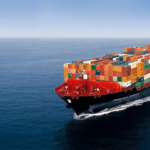

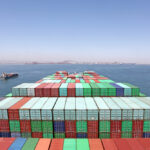




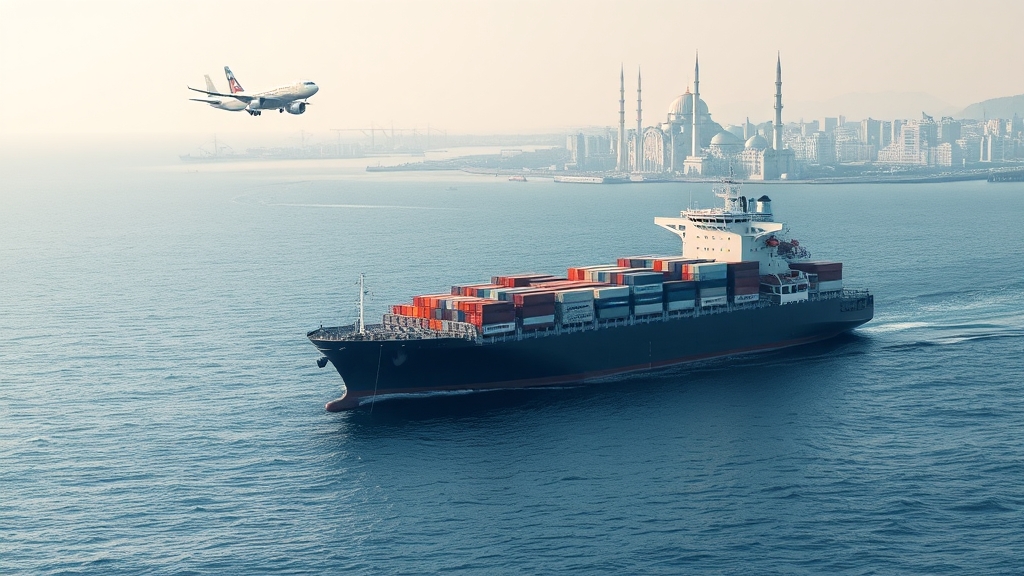



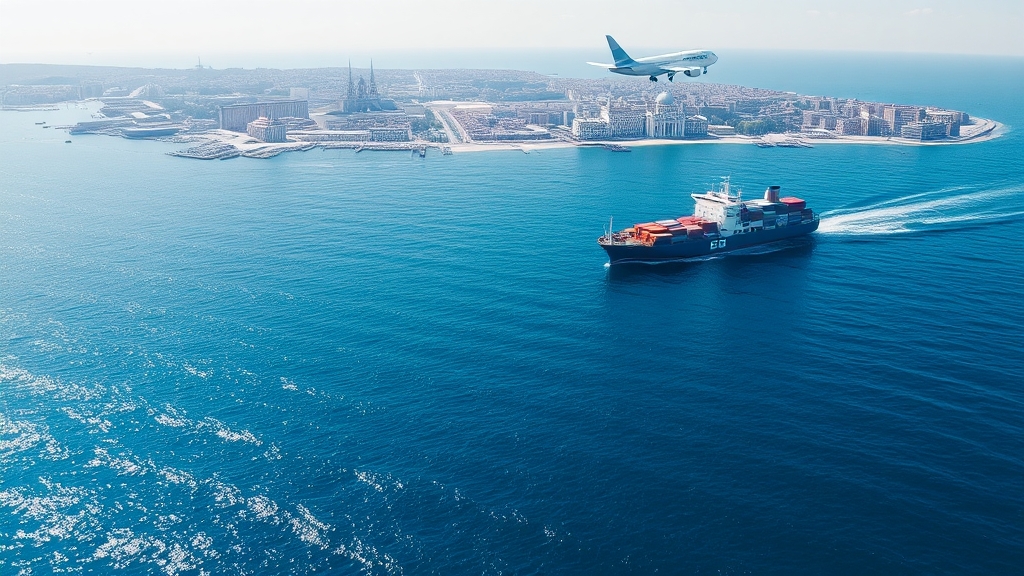





 Afrikaans
Afrikaans Shqip
Shqip አማርኛ
አማርኛ العربية
العربية Հայերեն
Հայերեն Azərbaycan dili
Azərbaycan dili Euskara
Euskara Беларуская мова
Беларуская мова বাংলা
বাংলা Bosanski
Bosanski Български
Български Català
Català Cebuano
Cebuano Chichewa
Chichewa 简体中文
简体中文 繁體中文
繁體中文 Corsu
Corsu Hrvatski
Hrvatski Čeština
Čeština Dansk
Dansk Nederlands
Nederlands English
English Esperanto
Esperanto Eesti
Eesti Filipino
Filipino Suomi
Suomi Français
Français Galego
Galego ქართული
ქართული Deutsch
Deutsch Ελληνικά
Ελληνικά Kreyol ayisyen
Kreyol ayisyen Harshen Hausa
Harshen Hausa Ōlelo Hawaiʻi
Ōlelo Hawaiʻi עִבְרִית
עִבְרִית हिन्दी
हिन्दी Hmong
Hmong Magyar
Magyar Íslenska
Íslenska Igbo
Igbo Bahasa Indonesia
Bahasa Indonesia Gaeilge
Gaeilge Italiano
Italiano 日本語
日本語 Basa Jawa
Basa Jawa ಕನ್ನಡ
ಕನ್ನಡ Қазақ тілі
Қазақ тілі ភាសាខ្មែរ
ភាសាខ្មែរ 한국어
한국어 كوردی
كوردی Кыргызча
Кыргызча ພາສາລາວ
ພາສາລາວ Latin
Latin Latviešu valoda
Latviešu valoda Lietuvių kalba
Lietuvių kalba Lëtzebuergesch
Lëtzebuergesch Македонски јазик
Македонски јазик Malagasy
Malagasy Bahasa Melayu
Bahasa Melayu മലയാളം
മലയാളം Maltese
Maltese Te Reo Māori
Te Reo Māori मराठी
मराठी Монгол
Монгол ဗမာစာ
ဗမာစာ नेपाली
नेपाली Norsk bokmål
Norsk bokmål پښتو
پښتو فارسی
فارسی Polski
Polski Português
Português ਪੰਜਾਬੀ
ਪੰਜਾਬੀ Română
Română Русский
Русский Samoan
Samoan Gàidhlig
Gàidhlig Српски језик
Српски језик Sesotho
Sesotho Shona
Shona سنڌي
سنڌي සිංහල
සිංහල Slovenčina
Slovenčina Slovenščina
Slovenščina Afsoomaali
Afsoomaali Español
Español Basa Sunda
Basa Sunda Kiswahili
Kiswahili Svenska
Svenska Тоҷикӣ
Тоҷикӣ தமிழ்
தமிழ் తెలుగు
తెలుగు ไทย
ไทย Türkçe
Türkçe Українська
Українська اردو
اردو O‘zbekcha
O‘zbekcha Tiếng Việt
Tiếng Việt Cymraeg
Cymraeg יידיש
יידיש Yorùbá
Yorùbá Zulu
Zulu